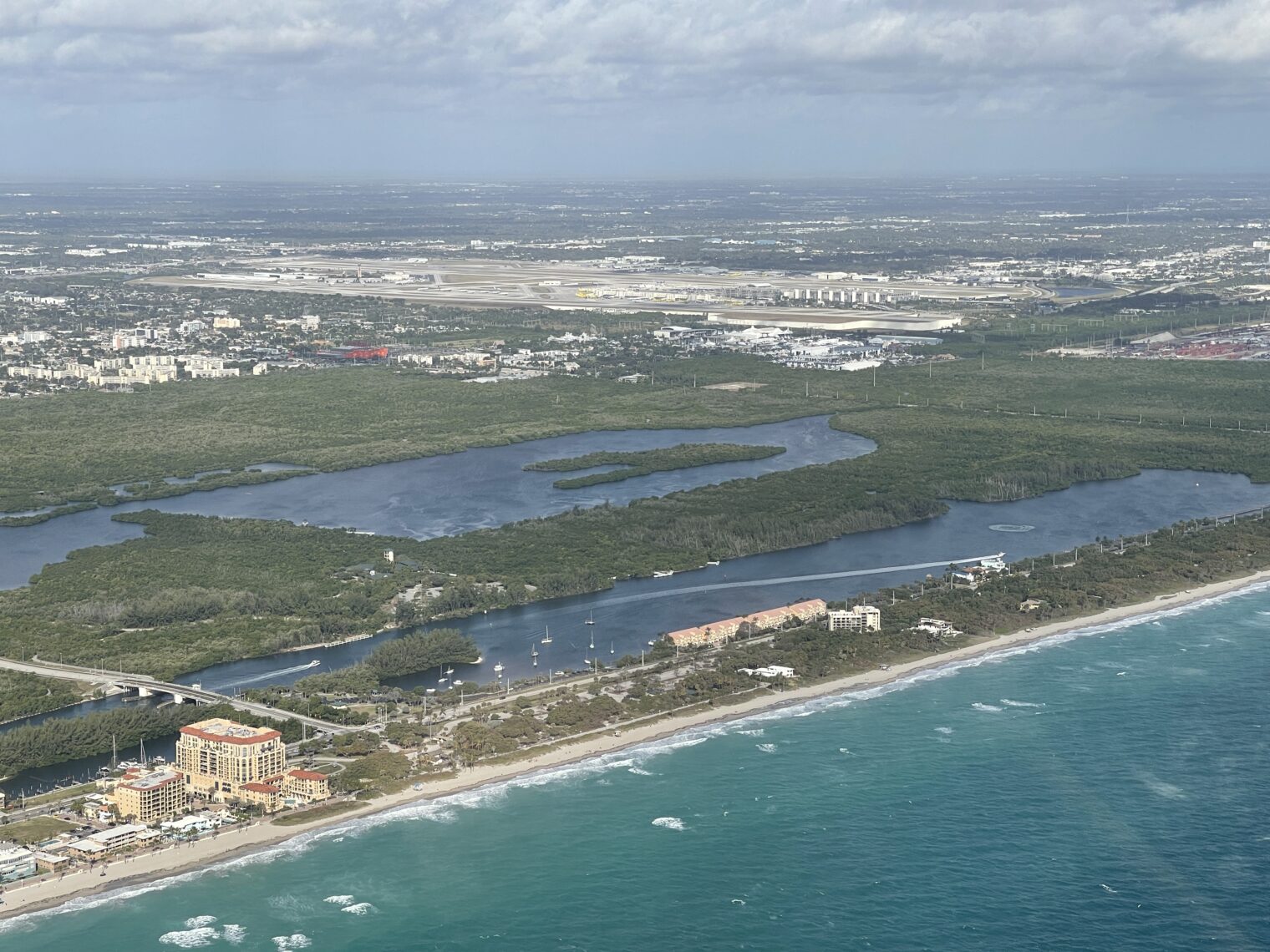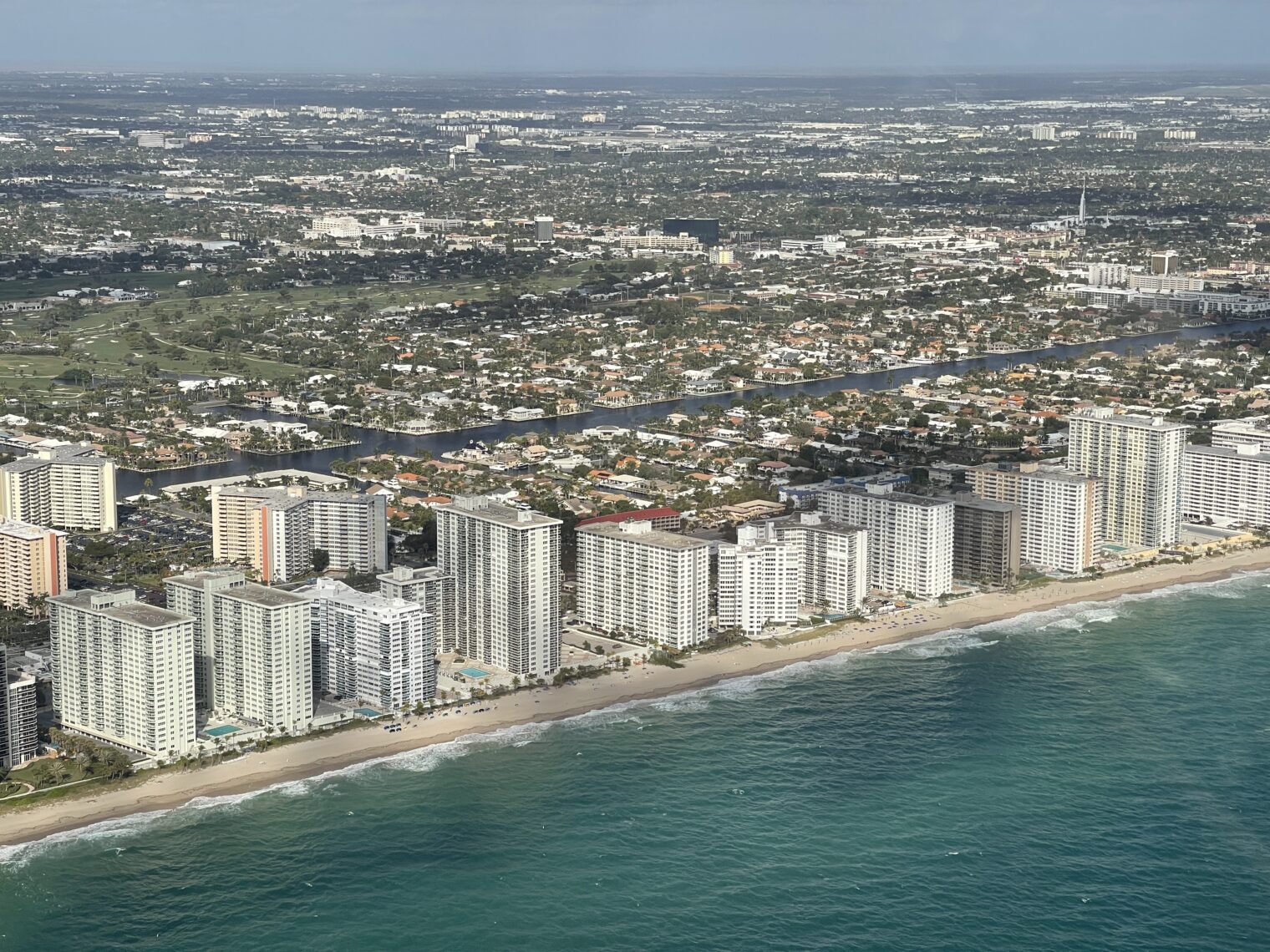“2 F.B.I. Agents Killed in Shooting in Florida” (NYT):
The sun had not come up yet on Tuesday when a group of F.B.I. agents assigned to investigate criminals who prey on children online approached the Water Terrace apartments in Sunrise, Fla., to execute a search warrant, a routine part of the job that is always fraught with risk.
What exactly happened in the ensuing minutes is unknown, but a gun battle broke out, rousting neighbors out of bed in the quiet residential community. Law enforcement officials called emergency dispatchers. Multiple shots fired, they reported. Send air rescue.
Two F.B.I. agents died and three more were injured in one of the deadliest shootings in the bureau’s history. No agent had been shot and killed on duty since 2008. A similarly bloody shootout took place in a Miami suburb 35 years ago, killing two F.B.I. agents and injuring five others.
A sad outcome, obviously, but the history is much more cheerful than what we see in Hollywood portrayals of the FBI, in which the pursued quite often manage to kill at least some of their pursuers.
The FBI has 35,000 employees, of whom more than 13,400 are “special agents” (Wikipedia). How did they manage to go 13 years without a Hollywood-style event in which an agent was killed?
From a recent flight up the U.S. coast, KFLL and the condo forest of Ft. Lauderdale:


Because the FBI has a very small proportion of agents that actually do dangerous things, and they’re usually fully kitted out in swat gear when they do.
Brian: Hollywood is lying to us? (Also, even with SWAT gear, we are informed by the NYT that Americans have all kinds of military-grade weapons. Can SWAT gear actually protect against being hit by what our media calls an “assault rifle”?)
Yes and yes.
Level iv body armor (ceramic plates of various designs) is rated to stop “assault” rifle fire. Armored vehicles (widely used by local police forces) will also do so.
Brian: Why don’t civilians who live in Baltimore, New Orleans, St. Louis, Detroit, and other U.S. cities that are more dangerous than the countries from which “refugees” are “fleeing violence” wear these ceramic outfits any time they’re out of their apartments? Wouldn’t that make sense?
No, as the vast majority of people in this country do not encounter rifle fire during their day.
We don’t encounter coronavirus in a typical day, but we all still wear double masks as recommended by Dr. Fauci!
The media seems to be more concerned about infiltrating semi-private discussions and creating outrage about saying bad words than it does statistics and science, so there you go.
Brian: Thanks for the education. I think I am going to add “wear body armor daily against potential gun violence” to my proposal to keep Americans safe by electronically limiting cars to 35 mph (17.5 mph on two-lane roads where a head-on collision is a possibility). I am sure that you will agree that we don’t want to put a price on saving lives, that it is only a small inconvenience to wear body armor, and that if we have $trillions to spend on coronapanic we can borrow some more $$ to send every American a full body armor suit.
As long as we’re being safety minded, mandatory blood draws to test for intoxication before flying a plane would seem to be in order.
Brian: There actually should also be a blood test for alcohol before anyone can drive a car. Breathalyzers can be off by 15 percent, according to a search just now.
Just a heads-up: this event is being manipulated to feed the QAnonesque pedophile conspiracy theories on the interwebs, with connections to Hunter Biden’s laptop. So there’s a lot of toxic waste being spread.
Since you asked about big shootings involving the FBI, one of the more important ones was the 1986 Miami Shootout, which among other things led to the adoption of .40 S&W (which some deride as the .40 ‘Short & Weak’) caliber handgun round by FBI agents, instead of the 9mm. Matix and Platt didn’t have “assault rifles” – they were armed with a Ruger Mini-14, a 12 gauge shotgun and a couple of revolvers. However, both had prior military training:
“Toxicology tests showed that the abilities of Platt and Matix to fight through multiple traumatic gunshot wounds and continue to battle and attempt to escape were not achieved through any chemical means. Both of their bodies were drug-free at the time of their deaths.[29]”
https://en.wikipedia.org/wiki/1986_FBI_Miami_shootout
https://www.youtube.com/watch?v=lBGfKtuo2AM
SWAT gear is like anything else: if deployed correctly by properly trained people, at the right time and in the right amount, yeah, it can change the odds. The right gear will stop some of the bullets. However, if you’re up against people who are highly determined and trained, and who have the element of surprise, well, not so much. I expect a big investigation.
Addendum: in the ’86 shootout, Matix was shot 6 times and Platt was shot **12 times** before it was all over. Only two of the FBI agents had any kind of body armor, and it was the “light” stuff, which could only stop handgun rounds (well under 1000 ft. lbs. of kinetic energy). The FBI agents landed a lot shots, but they weren’t effective or traumatic enough to stop Matix and Platt. That’s why the FBI wanted the bigger .40 caliber semiautomatic pistol rounds in the aftermath.
The most important determining factor in my mind was Matix & Platt’s military training and their determination to fight through their injuries rather than give up. That and the confusion and mayhem. The FBI guys had trouble reloading their revolvers, their guns jammed, they had a lot of confusion going on, etc. etc. Matix & Platt’s firepower was only marginally superior with the rifle but overall they were outgunned. But they were trained, and determined to go down fighting.
Alex, FBI is back to 9mm since for already 2 years I think. Could it be a culprit?
@Low Skilled Immigrant: Not enough information for me to say yet. I’ve only seen the first round of news reports about this incident, which tell you almost nothing about the firepower involved and who was wielding it, how many people were shooting, what kind of body armor was being worn by either the perps or the FBI, etc.
As far as 9mm vs. 40 S&W goes, without getting into a quasi-religious argument that gun enthusiasts could debate for days, let’s put it this way: good 9mm +P (high pressure) ammunition firing modern, jacketed hollow point rounds are very effective against human targets unless they are wearing body armor. They may carry a small amount less energy than a .40 S&W +P, but even the latter will not penetrate body armor designed to stop a rifle round. At that point, everything comes down to shot placement, because you have to try for head shots in most cases, which isn’t easy at greater than 25 yards, regardless of what kind of handgun you’re shooting. 9mm and .40 caliber handguns are good defensive weapons. They are good last-ditch weapons. They are capable backup weapons. But they are not, and will never be, anywhere near as effective as a rifle (at longer ranges) or a rifle/shotgun at closer ranges.
In other words, I doubt it. But to really understand what happened here, I’ll need more information about the way it went down to really understand why these two agents found themselves outgunned. I am leaning toward the idea that they thought they had the element of surprise with an early-morning incursion against suspects that were either lightly armed or not at all, and somehow their plans went awry, and they found themselves facing heavy resistance, maybe armed only with their handguns. Hard to win the fight in that situation.
@Low Skilled Immigrant: To put it another way: I know from personal experience that placing 5 or 10 consecutive shots from either a 9mm or .40 caliber pistol into a 6″ circle that is not moving and is not shooting back at you is difficult enough to accomplish – even at just 10 or 15 yards. And you are taking your time, squeezing the trigger, aligning your sights, etc., etc. Handguns are tough to shoot well. It’s an acquired skill that requires practice to maintain, and it degrades rapidly under pressure, with adrenaline and so forth.
If you’re up against someone who is well barricaded behind cover and is firing back at you with a rifle or a shotgun, the odds are not good. So if these two agents walked into an ambush because they thought their adversaries were going to put up their hands and surrender, that would explain a lot.
Alex, .40 S&W + P is called 10 mm Auto, or rather .40 S&W is 10 mm Auto with less SAAMI pressure. Whatever extra you put into 9 mm cartridge it is still going to be lighter then .40 S&W and has smaller cross-section area. Expensively engineered 9mm expansion is depending on barrel length, clothes, barrier, ammunition quality, humidity, etc… Even with less energy then expensive 9mm +P round .40 S&W has more stopping power in the worst possible case. Bottom-line, .40 S&W has more linear momentum that is defined as mass times velocity and as we know from mechanics momentum is measure of how objects interact while energy is measure of potential for objects to perform work. Guess you do not get much range time if you have problems with static 6 inch circle at 10 paces.
@Low Skilled Immigrant: Let’s please not go into the quasi-religious debate and don’t insult me. Thanks.
@Alex, never meant to insult you. Apologies.
@LSI: I realize there are details I glossed over with the comparison. I didn’t think they were particularly relevant. And truth to tell, if you shoot well, you do have practice quite a bit to stay in the 6″ circle. Ammo is expensive right now and people are holding on to it. Cheers.
Addendum addendum: The element of surprise is very important. I think in this case the FBI thought they had it, but in fact the dudes inside had anticipated them. I could be wrong, and I’m sure there’s going to be an investigation, but I think one of the reasons the FBI agents don’t get killed “that often” so to speak is that usually have everything scoped out pretty well in advance, giving them the insurmountable advantage. It may not have been true in this case.
Presumably, FBI agents are better educated, trained, and screened than other law enforcement.
Story I see is the perp had a doorbell camera that located the agents and he popped them quickly through the door with a semi auto rifle. Tough odds for the agents.
@Donald: Yeah. Hard to achieve surprise or cover when you’re on camera. I wonder what kind of doorbell camera?